WWP2 is overexpressed in human oral cancer, determining tumor size and poor prognosis in patients: downregulation of WWP2 inhibits the AKT signaling and tumor growth in mice
- PMID: 25621296
- PMCID: PMC4303889
- DOI: 10.18632/oncoscience.101
WWP2 is overexpressed in human oral cancer, determining tumor size and poor prognosis in patients: downregulation of WWP2 inhibits the AKT signaling and tumor growth in mice
Abstract
The WW domain containing E3 ubiquitin protein ligase 2 (WWP2) encodes a member of the Nedd4 family of E3 ligases, which catalyzes the final step of the ubiquitination cascade. WWP2 is involved in tumoral growth with degradation of the tumor suppressor phosphatase and tensin homologue deleted on chromosome TEN (PTEN). However, little is known about the mechanisms and roles of WWP2 in human malignancies including oral squamous cell carcinomas (OSCCs). We found frequent WWP2 overexpression in all OSCC-derived cell lines examined that was associated with cellular growth by accelerating the cell cycle in the G1 phase via degradation of PTEN and activation of the PI3K/AKT signaling pathway. Our in vivo data of WWP2 silencing showed dramatic inhibition of tumoral growth with increased expression of PTEN. Our 104 primary OSCCs had significantly higher expression of WWP2 than their normal counterparts. Moreover, among the clinical variables analyzed, enhanced WWP2 expression was correlated with primary tumoral size and poor prognosis. These data suggested that WWP2 overexpression contributes to neoplastic promotion via the PTEN/PI3K/AKT pathway in OSCCs. WWP2 is likely to be a biomarker of tumoral progression and prognosis and a potential therapeutic target for development of anticancer drugs in OSCCs.
Keywords: PTEN/PI3K/AKT pathway; WWP2; cell cycle; oral squamous carcinoma; tumoral growth.
Conflict of interest statement
All authors agreed with the authorship as listed on the title page of the manuscript. No potential conflicts of interest are disclosed.
Figures
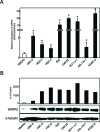
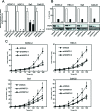

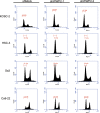
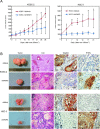
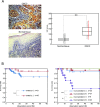
References
-
- Baba T, Sakamoto Y, Kasamatsu A, Minakawa Y, Yokota S, Higo M, Yokoe H, Ogawara K, Shiiba M, Tanzawa H, Uzawa K. Persephin: A potential key component in human oral cancer progression through the RET receptor tyrosine kinase-mitogen-activated protein kinase signaling pathway. Molecular carcinogenesis. 2013 - PubMed
-
- Ishige S, Kasamatsu A, Ogoshi K, Saito Y, Usukura K, Yokoe H, Kouzu Y, Koike H, Sakamoto Y, Ogawara K, Shiiba M, Tanzawa H, Uzawa K. Decreased expression of kallikrein-related peptidase 13: possible contribution to metastasis of human oral cancer. Molecular carcinogenesis. 2014;53(7):557–565. - PubMed
LinkOut - more resources
Full Text Sources
Other Literature Sources
Molecular Biology Databases
Research Materials

